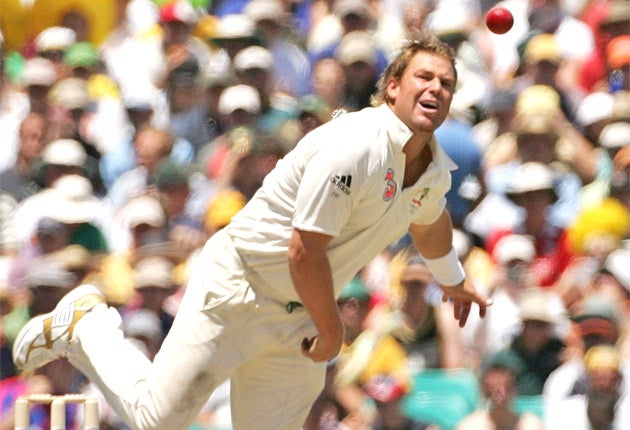Not the best ever, but this emerging team really are something

In the wake of another resounding victory it is natural to pose the question. How good are England? There have been two great Test sides in the past 30 years. The first were West Indies, the second were Australia.
When discussions start, as they inevitably do, about the best team ever both these garner plenty of support without ever shaking off "The Invincibles", the Australia of 1948. England are not in that league yet but they can go to similar places.
It is a measure of how far they have already gone that the comparison can be contemplated without being brought up on a charge of heresy before one of the ICC's match referees. Although 2-0 up against India with two matches to play, England are understandably cautious, aware that rah-rah could still become hah-hah.
Whatever India have played like so far (the gamut runs all the way between hopeless and useless) they remain officially the No 1-ranked Test team in the world. The ICC's rankings, like much of the rest of the organisation, are beginning to look pretty daft.
India reached the top and have stayed there for two years almost by stealth. They have never dominated but they have demonstrated an ability to come back into series recently, twice against South Africa and once against Sri Lanka.
On the evidence so far, England, who need to finish the fourth Test at The Oval still ahead by two clear matches to become official No 1, will do so. There is not much they have in common with West Indies, who bestrode the 1980s and a little beyond, and Australia, who took all before them throughout most of the 1990s and well into the new millennium. But a key component of both sides, apart from the individual talent therein, is a refusal to know when they are beaten and ruthlessness in exploiting the advantage when it comes. The first time this England showed this was in the 2009 Ashes series against Australia and from that unlikely foundation an empire is beginning to form.
England should have lost that series and almost did. Australians will go to their graves wondering how and why they were defeated but they were, despite having most of the top individual performers in both bowling and batting. England seemed to think that if they kept at it they had a chance and by the time the teams reached the deciding Test at The Oval they had done enough to lure Australia into picking the wrong team.
Another significant advance came last season when they defeated Pakistan 3-1, a scoreline which reflects the eventual dominance enjoyed by England but does not contain the information of the holes they had to dig themselves from at Trent Bridge and Lord's. To watch England in Australia was a joy for all manner of reasons, not least the 3-1 series victory, but it all started when they had to overturn a first-innings deficit of 221 at Brisbane.
The events of Trent Bridge in the second Test which ended on Monday provided another example. England had lost another important toss, were 124 for 8 but added another 97 runs. On a sunny second day, India were 267 for 4 but added only 14 more runs. After that there was only one winner because England believed they could come back from any position.
There is not much else in common with those West Indies and Australia sides. West Indies had a balanced batting order in which the spectacular combined with more studious virtues but the extremely fast and skilful bowling ensured their continuing pre-eminence.
Australia, too, had their share of excellent batsmen across the 15 years they prevailed but it was the bowling, mostly of Glenn McGrath and Shane Warne, that guaranteed their efficiency and fuelled their ruthlessness.
England have never had a set of bowlers like this lot. The class of 2005 which won the Ashes after 16 years might disagree and that, it is true, was a quintet of differing qualities who knew how to work together. But England have settled to life with four bowlers; three seamers and a spinner who keep engineering wins by huge margins.
It is a nagging worry, no more at present, that the spinner, Graeme Swann, has taken only two wickets in this series so far. It is a cause for concern that the captain, Andrew Strauss, continues to be short of runs.
There is not another side and there probably never was who could bring in a bowling all-rounder, Tim Bresnan, who promptly took seven wickets and scored 101 runs, including an innings of 90, in the match. They have been helped by a weary India unable to adapt to the necessary requirements of the Test form and deservedly undone so far by thinking that they are playing in the Indian Premier League.
But nobody can deny England's ethos as a team. In the 34 matches played under the management of Andy Flower, the coach, and Strauss, they have won 18, lost five and are on their way to their eighth series win from the last nine. They really are something.
Join our commenting forum
Join thought-provoking conversations, follow other Independent readers and see their replies
Comments
Bookmark popover
Removed from bookmarks